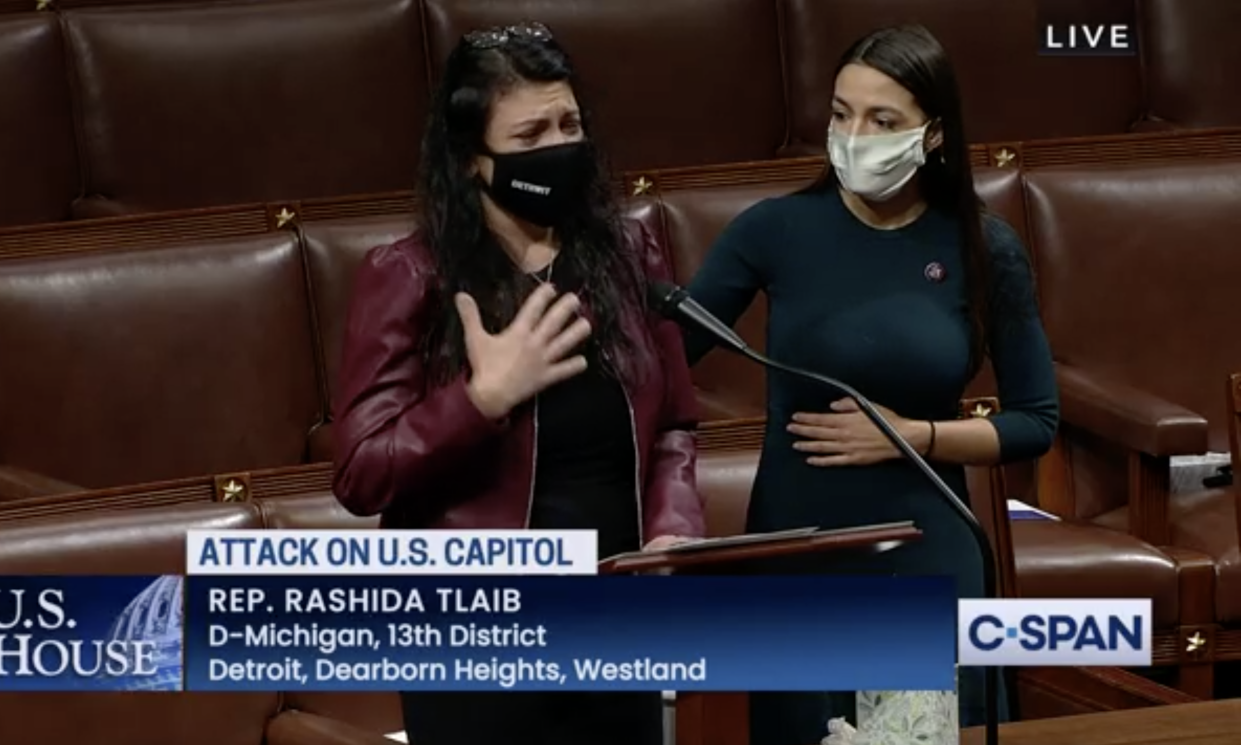AOC comforts weeping Rashida Tlaib as she recounts ‘trauma’ of death threats in Capitol riot testimony

AOC comforts weeping Rashida Tlaib as she recounts ‘trauma’ of death threats in Capitol riot testimony
(CSPAN)- Oops!Something went wrong.Please try again later.
Alexandria Ocasio-Cortez comforted weeping Rashida Tlaib as she recounted the trauma of the death threats she has faced in Capitol riot testimony.
Ms Ocasio-Cortez put her arm around her fellow congresswoman as she described the level of violent threats she has received as a lawmaker.
Ms Tlaib, who was not in the Capitol during the 6 January riots, openly wept at a special order hour organised by Ms Ocasio-Cortez for lawmakers to recall their own experiences during the pro-Trump attack in Washington DC.
Ms Ocasio-Cortez led the event after she herself came under fire from Republicans, including Nancy Mace.
"29 days ago insurrectionists attacked our Capitol to overturn the results of our nation's election," said Ms Ocasio-Cortez.
"29 days ago the glass in and around this chamber was shattered by gunshots, clubs, by individuals seeking to restrain and murder members of Congress, duly elected to carry out the duties of their office."
The lawmaker told her colleagues in the House that the violence had been "deliberately incited by the former president of the United States."
"Sadly less than 29 days later with little or no accountability for the bloodshed and trauma of the 6th some are already demanding we move on, or worse attempting to minimize discredit or belittle the accounts of survivors," she added."In doing so they not only further harm those who were there that day and provide cover for those responsible, but they also send a tremendously damaging message to survivors of trauma all over this country.
"That the way to deal with trauma violence and targeting is to paper it over, minimise and move on.
“Sadly this is all too often what we hear from survivors of trauma as the reason they don’t get care, that what they experienced wasn’t bad enough or too bad to talk about, or they are are afraid of being invalidated or accused of exaggeration or making a mountain out of a molehill."

